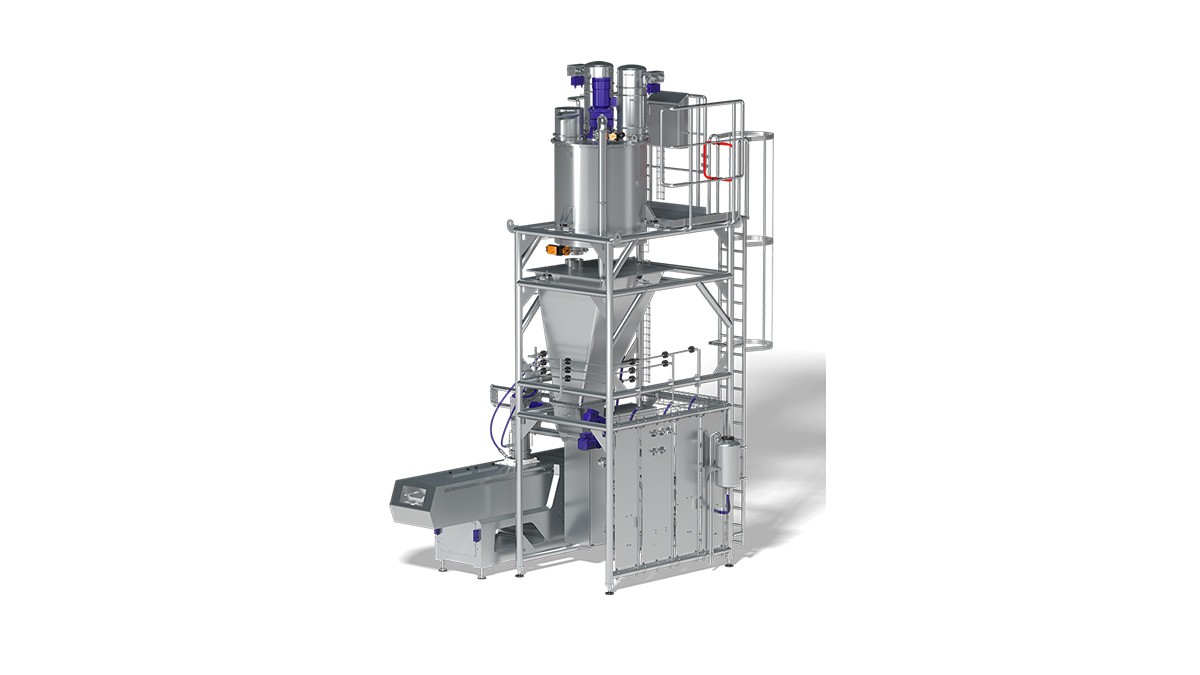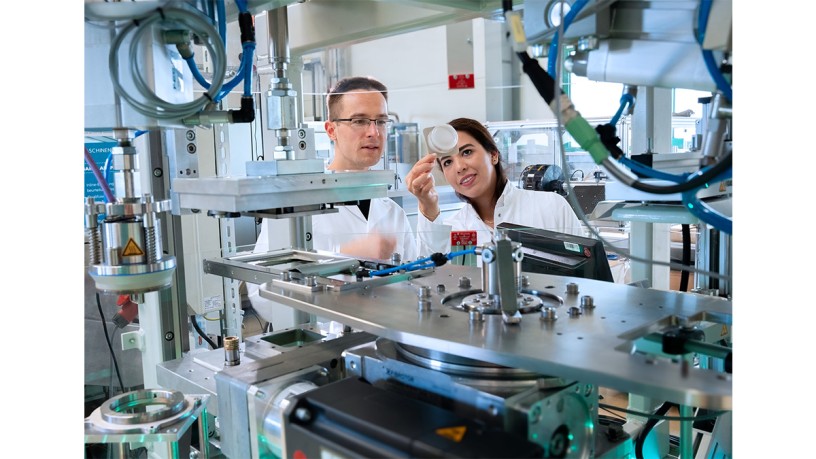Raw Material Handling
The bakery industry is under pressure due to rising costs, a shortage of skilled workers and high quality requirements. How is Zeppelin reacting to this?
Tobias König: We provide our customers with comprehensive support – from planning and engineering to the commissioning of complete systems. A key advantage lies in the in-house production of many key components, which means that we can completely control quality and function. A key element is automation: Our systems record and control all process steps – from storage and dosing to conveying and kneading. This ensures efficient material flow, high process reliability and complete traceability. Processes can be tested in advance under realistic conditions in our in-house technical centre in order to minimise risks and develop precisely tailored solutions. This is how we help our customers to produce economically, flexibly and sustainably – and create real added value beyond mere raw material handling.
How do you ensure that raw materials are processed hygienically and without cross-contamination?
Tobias König: Our strength lies in end-to-end system integration – from silos to dough kneaders. Even during storage, we rely on food-grade silo systems with controlled ventilation to ensure product safety and quality. The conveyor technology is designed to transport products such as flour or sugar gently, dust-free and without contamination. Precise dosing and weighing technology ensures accurate quantity control. Thanks to closed systems and innovative solutions such as DymoMix, which mixes dry and liquid components particularly gently and without lumps, we achieve excellent homogeneity and can, for example, produce oat biscuit dough very gently without damaging the oat flakes. For continuous dough preparation, the Codos system (see image) enables consistently high dough quality with maximum reproducibility. ReciPure container systems with separate product flows are used to prevent cross-contamination. Hygienically designed system components with smooth surfaces and minimal dead spaces prevent material residues. Automated cleaning processes enable fast, safe cleaning operations without dismantling. All processes are transparent and traceable thanks to modern control systems – for maximum hygiene, safety and product quality.

The Codos ® modular kneading system. Copyright:© Zeppelin Systems
With NAMiQ, your company offers a software solution for digital control and traceability. What specific advantages does this offer in practice?
Tobias König: With NAMiQ, Zeppelin Systems offers an integrated automation and digitalisation system that works along the entire automation pyramid – from the field level to the operational control level. It ensures that silos, dosing units, conveyor technology and kneaders work together smoothly and that third-party systems can also be integrated. NAMiQ complies with international safety and communication standards such as IEC 62443, OPC UA, ISA-88 and Pack ML, ensuring secure and transparent data communication. Our customers benefit from greater efficiency: Processes are monitored digitally, media breaks are reduced, and energy and materials are saved. Dashboards and analyses provide a sound basis for optimising key figures such as plant availability, consumption or causes of failure in a targeted manner. Zeppelin also offers a comprehensive service – from the concept phase to long-term support. NAMiQ is scalable, modular and platform-independent, making it ideally equipped to meet new legal or technological requirements.
How do your plant designs support sustainable, resource-efficient processes?
Tobias König: Conserving resources plays a central role in food production – both economically and in terms of regulations. Our plant concepts address this issue on several levels: Precise kneading systems such as the Codos system enable exact recipes without dosing deviations, product losses or unnecessary energy consumption. Automated cleaning processes reduce water and chemical consumption – a significant advantage when changing products frequently. Intelligent automation and data analysis enable energy and consumption values to be monitored and optimised. This reduces operating costs while significantly reducing waste and faulty batches. We take a holistic approach to sustainability – with energy-efficient system designs, ISO-certified environmental management and the goal of continuously reducing our own carbon footprint.
Where is raw material handling in bakery production heading – and how is Zeppelin Systems adapting to these changes?
Tobias König: Raw material handling in the production of baked goods will become significantly more digital, flexible and sustainable in the future. The trend is towards networked, open automation systems that enable precise, resource-saving process control through intelligent sensor technology and data analysis. Technologies such as predictive maintenance, adaptive cleaning and continuous systems such as Codos or DymoMix are becoming increasingly important in order to prevent product losses and maintain consistently high quality. At the same time, consumers are demanding increasingly customised products. This requires flexible recipe changes and modular plant concepts.
With its Food Technology Centre in Rödermark, Germany, Zeppelin provides a practice-oriented environment for the preliminary validation of new raw materials and processes. This is complemented by digital services such as remote support and smart maintenance tools, which ensure stable, future-proof production.
About Zeppelin Systems GmbH
Zeppelin Systems GmbH, headquartered in Friedrichshafen, Germany, is an internationally active plant manufacturer specialising in the handling, storage, conveying, mixing, dosing and weighing of high-quality bulk materials and raw materials. The company supplies complete solutions for industries such as food, plastics, rubber, chemicals and battery materials. These range from planning and in-house production of key components and control technology to assembly and support – all from a single source.
For additional information:
Tobias König
Sales Manager Food Plants & Process Machines
Zeppelin Systems GmbH
Messenhäuser Str. 39
63322 Rödermark
Germany
E-mail:
tobias.koenig@zeppelin.com
Web:
www.zeppelin-systems.com




